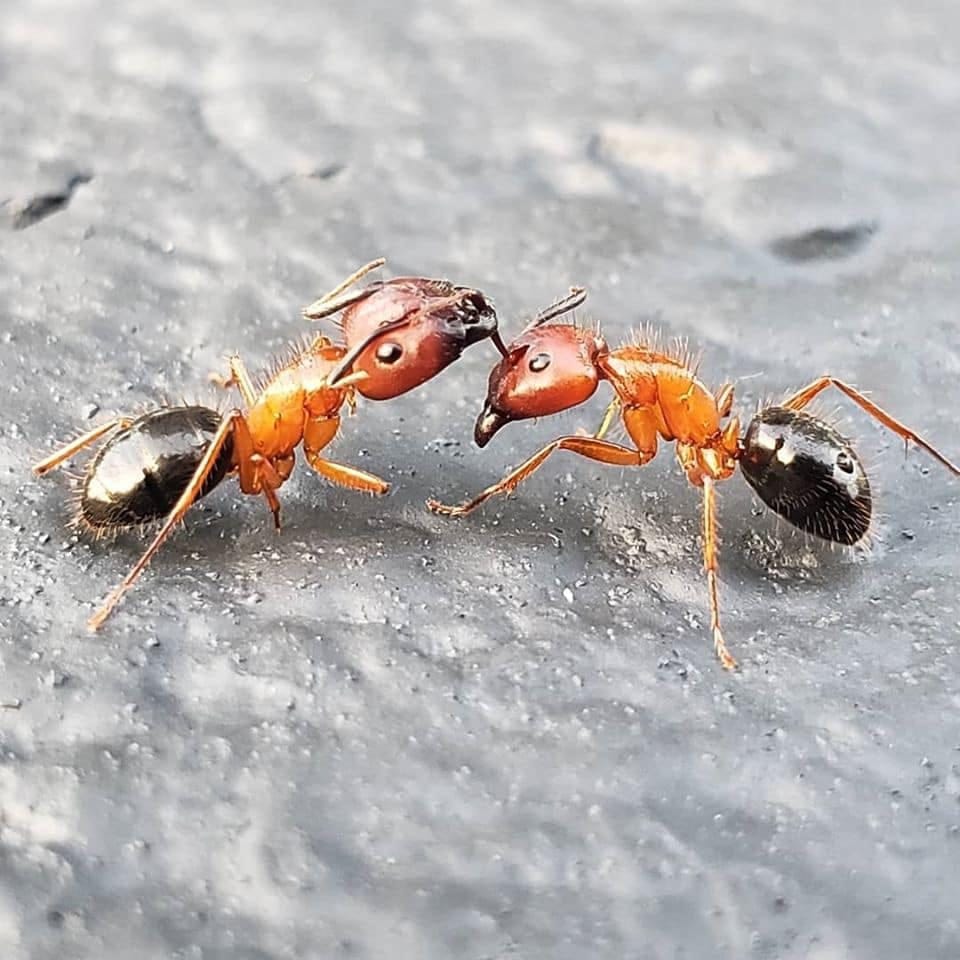Florida’s warm and humid climate makes it a perfect habitat for a wide variety of ant species. These insects play crucial roles in the ecosystem, from aerating soil to helping with decomposition. However, some species can become pests, invading homes and gardens in search of food and shelter.
In Naples and Fort Myers, residents frequently encounter various ant species, including ghost ants, fire ants, acrobat ants, Argentine ants, bigheaded ants, pavement ants, crazy ants, and Florida carpenter ants. Understanding these species is essential for effective pest control, so it’s wise to consult Certified Pest Control for expert assistance!
Tiny and elusive, ghost ants measure about 1.3 to 1.5 millimeters long, featuring dark heads and lighter abdomens. They often invade kitchens, appearing around countertops, sinks, and cabinets in search of sugary foods.
Reddish-brown and aggressive, fire ants range from 1/8 to 1/4 inch in size. They build protective dome-shaped nests and are known for their painful stings, making them a concern for homeowners.
Named for their distinctive behavior, acrobat ants hold their heart-shaped abdomens up in a characteristic pose. They emit a foul odor when threatened, aiding in identification.
These shiny dark brown to black ants grow about 1/16 inch long and release a musty smell when crushed. They form extensive colonies and can outcompete native species for resources.
Featuring a notable size difference between minor and major workers, bigheaded ants have major workers with significantly larger heads, making them easily recognizable.
Brown to black in color, pavement ants are small, growing slightly over 1/16 inch long. They commonly nest in cracks of sidewalks and pavements, invading properties in large numbers.
Known for their erratic movement, crazy ants are small, dark brown, or black ants that can form large colonies. They are drawn to electrical equipment and can cause damage if they invade your home.
These large ants, often black or bicolored, nest in wood that is already damaged by termites or moisture. While they don’t cause structural damage directly, addressing infestations is important to prevent further deterioration of compromised wood.
While most ants are a nuisance, fire ants pose the most significant risk in Florida due to their painful bites. These ants can invade homes, contaminating surfaces as they search for food. It’s crucial to keep ants out of your home to avoid health hazards.

At Certified Pest Control, we specialize in eliminating pests like ghost ants and fire ants. If you suspect an infestation, contact us for tailored pest management solutions. Our local, pet-safe ant control services are designed to effectively eliminate colonies and prevent future invasions. Schedule your free pest control inspection today!
Many homeowners wonder, “How did I get ghost ants?” Their small size allows them to slip through tiny cracks and crevices. Once inside, they seek out sugary substances, making it essential to maintain clean kitchen and food storage areas. Ghost ants are often the culprits behind “sugar ant” infestations.
To keep ants at bay in your Naples and Fort Myers home, follow these effective prevention strategies: